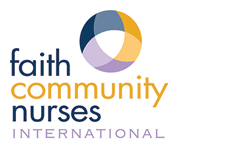Abstract
Purpose: To report the development of a faith community nursing intervention to promote health across the life span. Studies by Callaghan (2003, 2005, 2006), that investigated the relationships among self-care agency, self-care self-efficacy, and health-promoting self-care behaviors, support the importance of spiritual growth on older adults’, adults’, and adolescents’ initiative and responsibility for self-care. This report will focus on applying these results and the research evidence that supports the integration of these concepts in the development of a health promotion intervention.
Procedures: Data was merged from Callaghan’s studies (2003, 2005, 2006) in order to investigate to what extent do self-care agency and self-care self-efficacy explain health-promoting self-care behaviors across the life span. The sample consisted of 870 subjects with ages ranging from 14 to 98 years. The instrumentation included the following scales: Exercise of Self-Care Agency, Self-Rated Abilities for Health Practices, Health-Promoting Lifestyle Profile II, demographic questionnaire. The data was analyzed using a canonical correlation statistic.
Findings: A significant canonical variate with a canonical correlation of .81 (p < .001) accounting for 65% of the variance explained was identified. The canonical loadings identified all of the study variables as significantly contributing to this variate.
Conclusions: The study results support the integration of the concepts of self-care agency, self-care self-efficacy, and health-promoting self-care behaviors in the development of a faith community nursing intervention to promote health across the life span. The development of an intervention based on this evidence is presented.
First Page
9
Included in
International and Area Studies Commons, Other Nursing Commons, Public Health and Community Nursing Commons, Religion Commons, Social Work Commons
